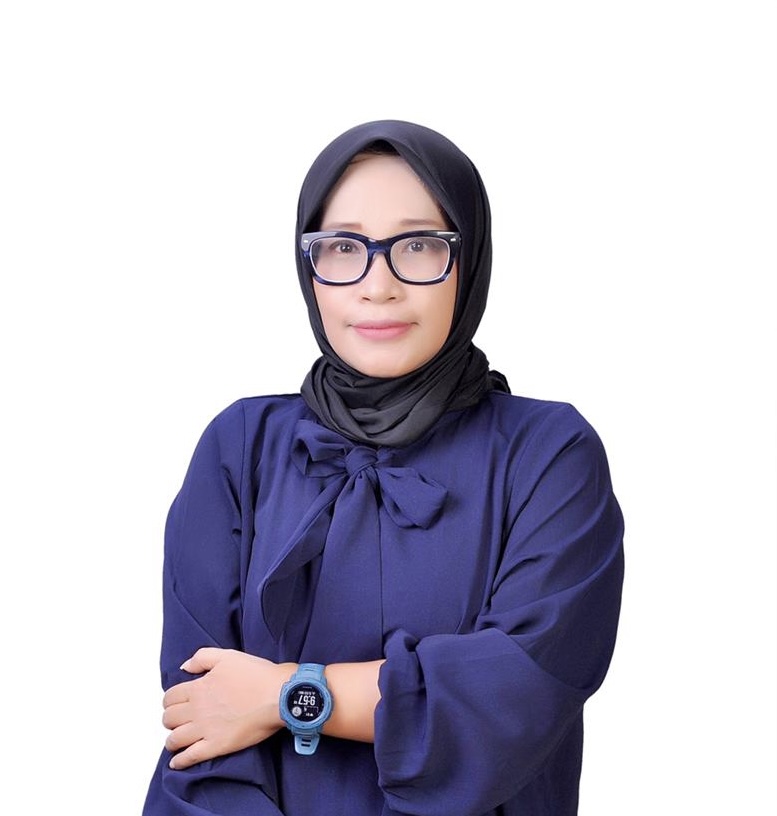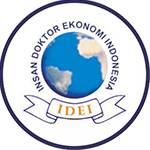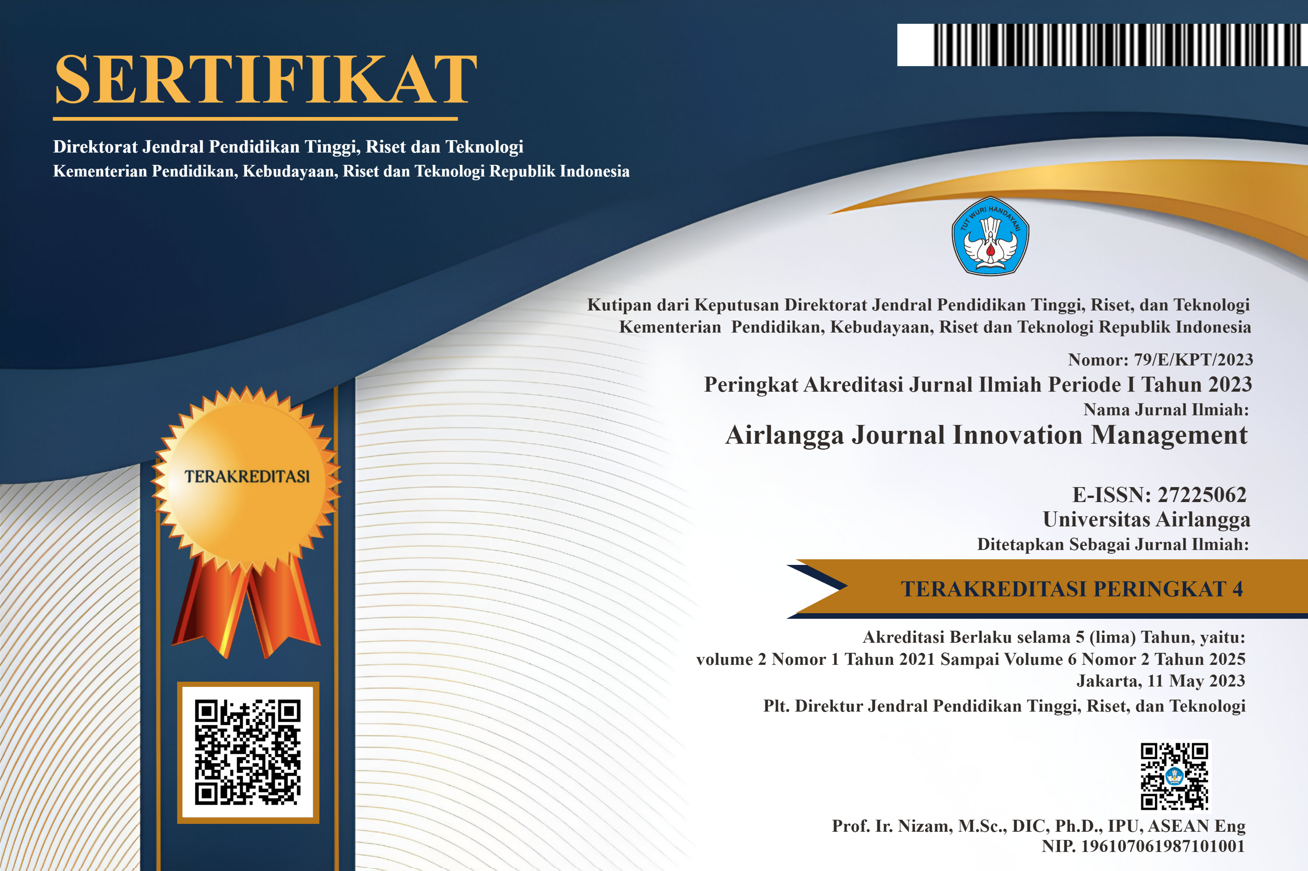The Peranan Manajemen Pengelolaan Keuangan Islam Untuk Menghindari Gaya Hidup Shopaholic Sebagai Bentuk Perilaku Konsumtif ( Pada Santriwati Prodi Ekonomi Syari’ah Ponpes Putri Darullughah Wadda’wah)
Unduhan
Perkembangan teknologi dan informasi telah mengubah dunia, kekuatan globalisasi & digitalisasi menyebabkan terjadinya perubahan pola pikir dan pola perilaku. Berbagai macam bentuk perubahan yang terjadi dimasyarakat sangat mempengaruhi kebutuhan hidup manusia dan mengubah pola konsumsi. Kaum kapitalisme berusaha menciptakan citra bahwa orang sukses adalah orang yang mempunyai banyak barang serta mendorong manusia untuk melakukan konsumsi lebih banyak. Semakin banyaknya kebutuhan hidup manusia, semakin menuntut pola terjadinya peningkatan gaya hidup, serta budaya konsumerisme membuat sebagian masyarakat tidak sadar bahwa mereka telah membelanjakan uangnya tanpa perhitungan kembali, rendahnya keinginan untuk menabung & pengetahuan berinvestasi dimasa yang akan datang masih kurang optimal dalam pengelolaannya. Penelitian ini merupakan penelitian deskriptif dengan pendekatan kualitatif. Peneliti akan menguraikan serta mendeskripsikan tentang kehidupan sosial-ekonomi santriwati ponpes Dalwa yang sudah memiliki tujuan keuangan pribadi (saku ) untuk merencanakan, pengorganisir, mengarahkan, serta mengendalikan kegiatan keuangan baik pengeluaran dan pemasukan dengan tujuan membiasakan pola hidup sederhana, tidak konsumtif serta membuat, mengelolah dan merencanakan keputusan belanja & konsumsi selama berada dipondok. Dari hasil analisis data lapangan diperoleh gambaran bahwa penerapan 5 konsep pola perilaku manajemen pengelolaan keuangan Islam yaitu : membelanjakan/mengontrol uang sesuai kebutuhan bukan keinginan, membayar kewajiban tepat waktu, merencanakan keuangan untuk keperluan masa depan/membuat daftar skala prioritas, menabung/menyisihkan uang saku, serta konsumsi yang rasional ( mustahliq al-aqlani ) membelanjakan pendapatan sesuai kebutuhan. Setiap santri diharapkan memiliki kemampuan mengarahkan & mengontrol penggunaan uang saku sebagai solusi atas konsumsi yang irasional cenderung tidak hemat serta menghindari gaya hidup shopaholic.
Alam, A., Ratnasari, R. T., Ryandono, M. N. H., Prasetyo, A., Santosa, I. W. M., & Bafana, F. A. (2023). Systematic literature review on Malaysia Zakat studies (2011-2023). Multidisciplinary Reviews, 6(4), 2023044.
Fauziana, H., Wardhana, A. K., & Rusgianto, S. (2022). The Effect of Education, Income, Unemployment, and Poverty toward the Gini Ratio in Member of OIC Countries. Daengku: Journal of Humanities and Social Sciences Innovation, 2(2), 181–191.
Febriyanti, A. R., Ratnasari, R. T., & Wardhana, A. K. (2022). The Effect of Economic Growth, Agricultural Land, and Trade Openness Moderated By Population Density on Deforestation in OIC Countries. Quantitative Economics and Management Studies, 3(2).
Ghifara, A. S., Iman, A. N., Wardhana, A. K., Rusgianto, S., & Ratnasari, R. T. (2022). The Effect of Economic Growth, Government Spending, and Human Development Index toward Inequality of Income Distribution in the Metropolitan Cities in Indonesia. Daengku: Journal of Humanities and Social Sciences Innovation, 2(4), 529–536.
Iman, A. N., Wardhana, A. K., Rusgianto, S., & Ratnasari, R. T. (2022). Venture vs Investment, Which Type of Financing was more Demanded by Agriculture, Forestry, and Aquaculture Sector? Daengku: Journal of Humanities and Social Sciences Innovation, 2(5), 587–595.
Juliansyah, A. F., Putri, A. E., Suryadana, M. L., Endyana, C., & Wardhana, A. K. (2021). Global Muslim Response to Bandung Halal Tourism Branding. International Journal of Applied Sciences in Tourism and Events, 5(2), 197–206. https://doi.org/https://doi.org/https://doi.org/10.31940/ijaste.v5i2.197-206
Loestefani, V., Poan, R., Suwitorahardjo, B., & Wardhana, A. K. (2022). Service Quality and Product Quality as An Influence on Customer Loyalty at Naturalis Koffie. FIRM Journal of Management Studies, 7(2), 211–236.
Mafruchati, M., Ismail, W. I. W., Wardhana, A. K., & Fauzy, M. Q. (2023). Bibliometric analysis of veterinary medicine on embryo of animals in textbook in conceptualizing disease and health. Heliyon.
MAFRUCHATI, M., MAKUWIRA, J., & WARDHANA, A. K. (n.d.). A SYSTEMATIC REVIEW ON THE DEVELOPMENT OF QUAIL OVARY EMBRYOGENESIS (Coturnix coturnix Japonica) UNDER DIFFERENT LIGHTING COLORS.
Mafruchati, M., Musta’ina, S., & Wardhana, A. K. (2024). Research trends of Moringa oleifera Lam as Remedy toward Cattle’s embryo according to the frequently used words in content of papers and citations. Heliyon, 10(11).
Mafruchati, M., Othman, N. H., & Wardhana, A. K. (2023). Analysis of the Impact of Heat Stress on Embryo Development of Broiler: A Literature Review. Pharmacognosy Journal, 15(5).
Mathematics, R. N.-T. J. of C. and, & 2021, undefined. (2021). Issues And Challenges Of Online Shoppingactivities On The Impact Of Corona Pandemic: A Study On Malaysia Retail Industry. Turcomat.Org, 12(10), 7682–7686. https://www.turcomat.org/index.php/turkbilmat/article/view/5680
Muhaimin, H., Herachwati, N., Hadi, C., Wihara, D. S., & Wardhana, A. K. (2023). Entrepreneurship Leadership: Fostering An Entrepreneurial Spirit In Students During Pandemic Covid-19 (Case Study In Tebuireng Boarding School East Java). Journal of Namibian Studies: History Politics Culture, 33, 5597–5610.
Nuryahya, E., Mahri, A. J. W., Nurasyiah, A., & Adiresuty, F. (2022). Technology acceptance of zakat payment platform: An analysis of modified of unified theory of acceptance and use of technology. Al-Uqud: Journal of Islamic Economics, 6(1), 142–159.
Pasha, M. (2018). Ibn Khaldun and the Wealth of Nations. In Routledge Handbook of Ethics and International Relations (pp. 554–564). Taylor & Francis.
Pratiwi, A. C., Wardhana, A. K., & Rusgianto, S. (2022). Application of Vector Error Correction Model on Macroeconomic Variables toward Changes in the Composite Stock Price Index. Daengku: Journal of Humanities and Social Sciences Innovation, 2(2), 219–229.
Qosim, N., Ratnasari, R. T., Wardhana, A. K., Fauziana, H., & Barkah, T. T. (2023). Eight Years of Research Related to the Green Sukuk in the Global Stock Exchange Market to Support the Implementation of SDG: A Bibliometric Review. Journal of Islamic Economic and Business Research, 3(2), 161–180.
Rahman, I., Ratnasari, R. T., & Wardhana, A. K. (2022). Effect of Certificate of Bank Indonesia Sharia and Indonesian Bank Seven Days Repository Rate to Inflation Ratio in Indonesia During Covid-19 Pandemic. Economic Education and Entrepreneurship Journal, 5(1), 157–174.
Riduwan, R., & Wardhana, A. K. (2022). Effect of industrial digitalization on total halal meat production in Java. Journal of Halal Product and Research, 5(1), 24–31.
Ryandono, M. N. H., Kusuma, A., Maryani, A., & Wijayanti, I. (2022). Factors influence online donation during COVID-19 pandemic. Al-Uqud: Journal of Islamic Economics, 6(1), 66–83.
Ryandono, M. N. H., Mawardi, I., Rani, L. N., Widiastuti, T., Ratnasari, R. T., & Wardhana, A. K. (2022). Trends of research topics related to Halal meat as a commodity between Scopus and Web of Science: A systematic review. F1000Research, 11(1562), 1562.
Ryandono, M. N. H., Permatasari, S. A., & Wijayanti, I. (2019). Business behavior in an islamic perspective: Case study of muslim woman entrepreneurs in Ikatan Wanita Pengusaha Indonesia (IWAPI). 12th International Conference on Business and Management Research (ICBMR 2018), 154–159.
Santoso, T. B., & Kusuma, A. (2023). The Development of the Usage of Blockchain for Waqf and Zakat Globally: A Bibliometric Study. International Journal of Mechanical Computational and Manufacturing Research, 13(3), 83–91.
Shara, Y., Muda, I., & Rujiman, R. (2019). Role of organizational commitment to the factor of performance of regional financial management. 1st Aceh Global Conference (AGC 2018), 411–415.
Shara, Y., Ovami, D. C., & Humairah, R. (2020). Analisis Pengaruh Akuntabilitas dan Transparansi Terhadap Kinerja Anggaran dengan Konsep Value For Money Padarsud Djoelham Binjai. Journal of Trends Economics and Accounting Research, 1(1), 13–17.
Siddiq, I., Juliana, J., & Adirestuty, F. (2020). Shariapreneur Interest: Analysis Of Sharia Business Knowledge and Motivation (Studies On Students Of The Islamic Economics Study Program Bandung City Universities. Review of Islamic Economics and Finance, 3(2), 80–90.
Wardhana, A. K. (2021). The Application of Waqf and Endowment Fund Based on the Principles in the Sharia Maqashid Pillar Society. Prosperity: Journal of Society and Empowerment, 1(2), 107–119. https://doi.org/10.21580/prosperity.2021.1.2.8829
Wardhana, A. K. (2022). JANJI (WA’AD) SEBAGAI JARING PENGAMAN PADA TRANSAKSI KEUANGAN DAN BISNIS SYARIAH. Jurnal Keislaman, 5(1), 124–132. https://doi.org/https://doi.org/10.54298/jk.v5i1.3412
Wardhana, A. K. (2023). Applying Islamic Leadership In Working Environment: A Bibliometric Study. Journal Human Resources 24/7: Business Management, 1(1), 25–32.
Wardhana, A. K., & Ratnasari, R. T. (2022). Impact of Agricultural Land and the Output of Agricultural Products Moderated with Internet Users toward the Total export of Agricultural Product in Three Islamic South East Asian Countries. Iqtishodia: Jurnal Ekonomi Syariah, 7(2), 11–20.
Wardhana, A. K., Ratnasari, R. T., & Fauziana, H. (n.d.). ISLAMIC INVESTMENT IN INDONESIA BEFORE AND DURING PANDEMIC OF COVID-19: A BIBLIOMETRIC STUDY INVESTASI SYARIAH DI INDONESIA SEBELUM DAN SELAMA PANDEMI COVID-19: STUDI BIBLIOMETRIK.
Wijayanti, I. (n.d.). Analisis Penerapan Qawaid Fiqiyyah Terhadap Kebijakan Belanja Pegawai Pemerintah Dalam Pelaksanaan APBN Di Indonesia. BOOK-5: EKONOMI ISLAM, 941.
Wijayanti, I., Herianingrum, S., & Ryandono, M. N. H. (2020). Islamic Crowdfunding Mechanism to Answer Renewable Energy Investment Challenge in Indonesia. Test Engineering and Management, 83, 3596–3605.
Wijayanti, I., & Ryandono, M. N. H. (2020). Zakat institutions’ mustahiq transformation in developing countries: Comparison study. Opcion, 36(S26), 350–366.
Wijayanti, I., Ryandono, M. N. H., & Petra, D. H. S. P. H. (2021). Financial Inclusion through Zakat Institution: Case Study in Indonesia and Brunei Darussalam. International Journal of Islamic Business and Economics (IJIBEC), 5(2), 128–140.
Yudha, A. T. R. C., Huda, N., Maksum, M., Sherawali, S., & Wijayanti, I. (2024). The Moderating Effect of Religiosity on Fashion Uniqueness and Consciousness in Halal Fashion Purchase. Indonesian Journal of Halal Research, 6(2), 71–84.
Zakik, Z., Kamil, A., Prasetyo, A. S., Ryandono, M. N. H., & Wijayanti, I. (2022). Economic development on Madura Island through halal tourism: A business feasibility study. Al-Uqud: Journal of Islamic Economics, 6(2), 289–303.
Zulaikha, S., Hendratmi, A., Sridadi, A. R., Basit, A., Iman, A. N., Wardhana, A. K., Ghifara, A. S., Pratiwi, A. C., Febriyanti, A. R., & Nugroho, A. D. (n.d.). FILSAFAT EKONOMI ISLAM Menjawab Tantangan Peradaban. Zifatama Jawara.
Hak Cipta (c) 2024 Airlangga Journal of Innovation Management

Artikel ini berlisensiCreative Commons Attribution-NonCommercial-ShareAlike 4.0 International License.
- The journal allows authors to hold copyright without restrictions and retain publication rights without restrictions. The author retains the copyright and grants the first publication rights to the journal, with his work simultaneously licensed under the Creative Commons Attribution-NonCommercial-ShareAlike 4.0 International License (CC BY-NC-SA). This license allows others to share the work with acknowledgment of authorship and initial publication in this journal, provided that the work is not used for commercial purposes and that any derivative works must use the same license.
- Authors may enter into additional contractual agreements for non-exclusive distribution of the journal publication version (e.g., uploading it to an institutional repository or publishing it in book form), while still including acknowledgment of the initial publication in this journal.
- Authors are allowed and encouraged to upload their work online (e.g., in an institutional repository or personal website) before and during the submission process. This can support productive scientific exchanges as well as increase citations to published works.

AJIM by UNAIR is licensed under a Creative Commons Attribution-NonCommercial-ShareAlike 4.0 International License.





















